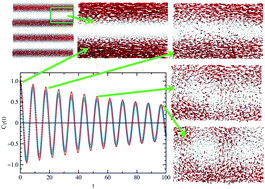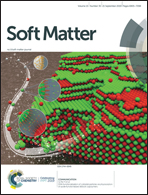Sound attenuation in stable glasses
Abstract
Understanding the difference between the universal low-temperature properties of amorphous and crystalline solids requires an explanation for the stronger damping of long-wavelength phonons in amorphous solids. A longstanding sound attenuation scenario, resulting from a combination of experiments, theories, and simulations, leads to a quartic scaling of sound attenuation with the wavevector, which is commonly attributed to the Rayleigh scattering of sound. Modern computer simulations offer conflicting conclusions regarding the validity of this picture. We simulate glasses with an unprecedentedly broad range of stabilities to perform the first microscopic analysis of sound damping in model glass formers across a range of experimentally relevant preparation protocols. We present convincing evidence that quartic scaling is recovered for small wavevectors irrespective of the glass's stability. With increasing stability, the wavevector where the quartic scaling begins increases by approximately a factor of three and the sound attenuation decreases by over an order of magnitude. Our results uncover an intimate connection between glass stability and sound damping.



 Please wait while we load your content...
Please wait while we load your content...
